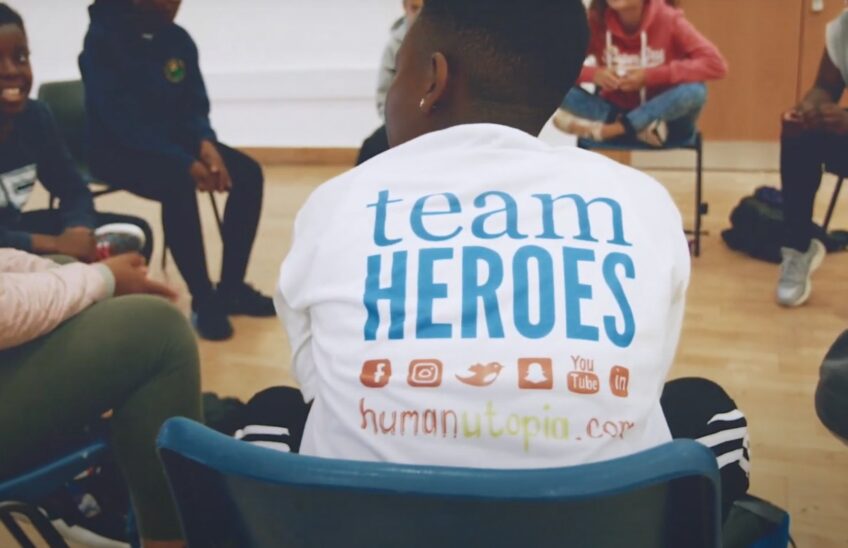Imagine the warmth of a knowing glance, the comfort in a friend’s whispered “I get it”, or the gentle touch of support during a tough moment. In the world of trauma and mental health, the support from peers – those we see in the hallways, laugh with during breaks, and dream alongside – is truly something special.
At humanutopia, we’ve consistently championed this belief, and the results have been nothing short of transformative.
- The Relatability Factor: Peer support thrives on the fundamental premise that individuals of the same age group, undergoing similar experiences, can relate to each other’s challenges more effectively. There’s a certain authenticity when a peer says, “I’ve been there.” After all, 79% of young people have reported thinking more positively about themselves after working with humanutopia, and peer interactions play a pivotal role in this journey.
- The Safety of Familiarity: Conversations about trauma and mental health can be daunting. However, opening up to someone familiar, someone from the same class or year group, often feels less intimidating than talking to an adult. It creates a comforting bridge of communication, facilitating discussions that might otherwise remain unvoiced.
- Empowerment Through Leadership: Programmes like Heroes Journey not only offer support to those in need but also empower the mentors. By taking on a leadership role, these mentors develop essential life skills, gaining confidence and a sense of purpose. It’s a dual-edged solution: helping both the mentored and the mentor.
- Incorporating Trauma Sensitivity in Peer Programmes: The Heroes Journey, one of our flagship initiatives, is a sterling example of how trauma sensitivity can be seamlessly incorporated into peer mentoring. Through interactive sessions and impactful activities, students are equipped to recognise signs of trauma, respond with empathy, and offer support that’s rooted in understanding and respect.
- Building Resilient Communities: When students stand up for one another, they’re not just supporting individuals; they’re fostering resilient communities. Schools that have embraced peer mentorship, underpinned by trauma sensitivity, invariably report a more cohesive, empathetic, and resilient student body.
- Enhancing Academic and Social Outcomes: It’s worth noting that the positive effects of peer support extend beyond mental well-being. In our experience, schools with strong peer mentoring programmes have seen improvements in academic achievements, reduced absenteeism, and enhanced overall student engagement.
The importance of peer support, especially in the context of trauma and mental health, is a testament to the age-old adage: ‘it takes a village’. Through initiatives like the Heroes Journey, and from working with nearly 600,000 young people over 20 years, we have witnessed firsthand the profound, positive ripple effects that peers can create. It reinforces the belief that every student has the potential to be both a beacon of support and a recipient of it, moulding an environment where understanding, empathy, and resilience reign supreme.















